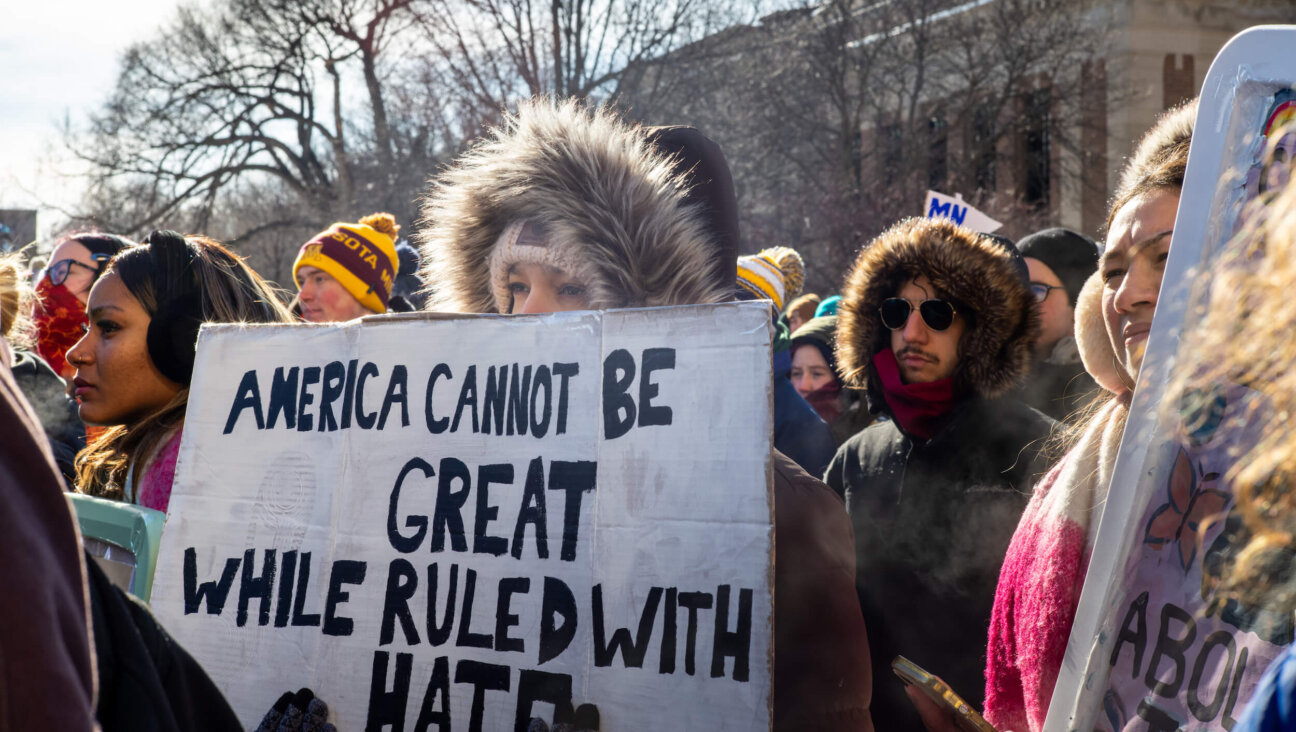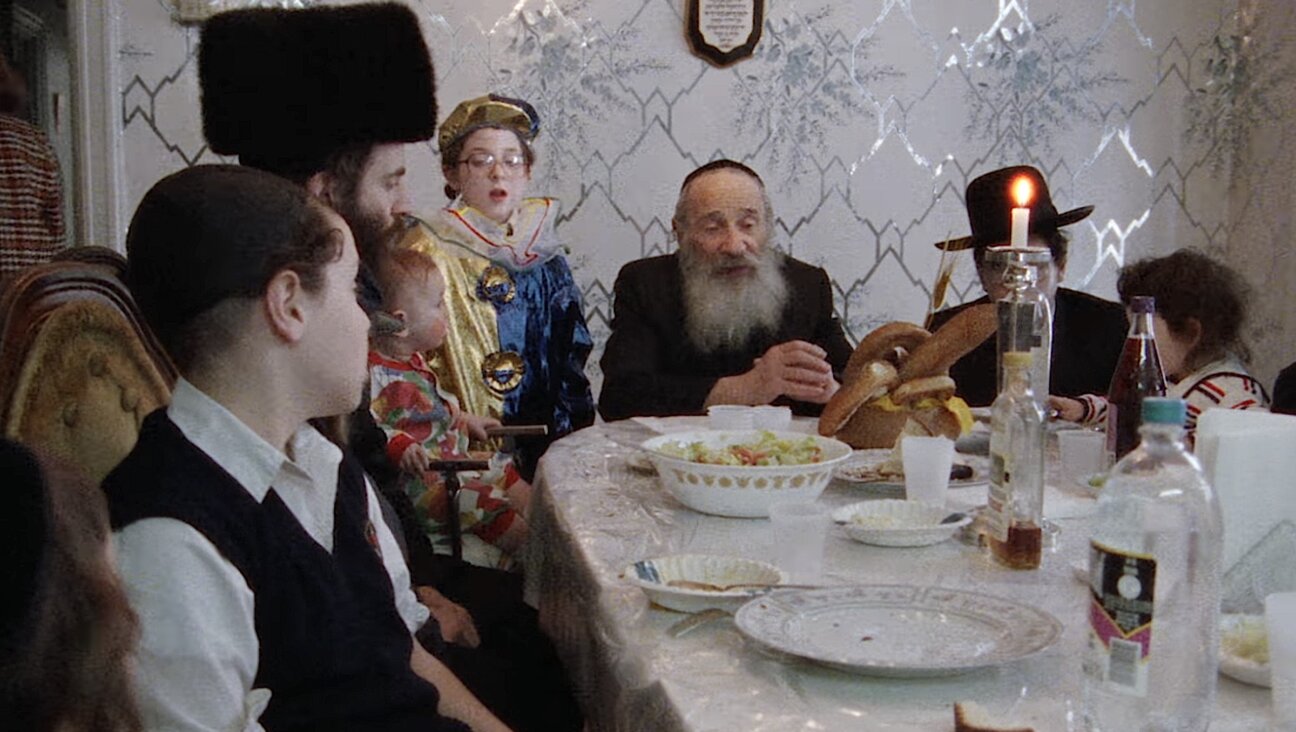Jewish Federations Fight Proposed Medicaid Cuts
WASHINGTON — In a last-ditch lobbying effort, the country’s main Jewish philanthropic network is urging Congress to reject the Bush administration’s proposed Medicaid cuts.
Local Jewish charitable federations across the country are fighting to block the cuts to Medicaid, the nation’s chief public health program for the poor. Federation officials are expected to meet in the coming weeks with Republican leaders of the GOP-controlled Senate and House of Representatives, as well as with lawmakers from both parties charged with hammering out a final formula on Medicaid funding in next year’s budget.
Congressional sources said that federation lobbying already played a key role in convincing some Senate Republicans to join Democrats in successfully rejecting the White House-backed cuts.
Medicaid provides health coverage to more than 50 million Americans — up about 10 million since 1999. The proposed cuts would impact hundreds of thousands of needy people served by the Jewish communal health and social service system, according to United Jewish Communities officials.
The program accounts for more than half the $2.5 billion to $3.5 billion in public funding that the federation network receives annually. It is the principal source of funding for almost 200 Jewish nursing homes and hospitals and a significant source of funding for 150 Jewish family service and children’s agencies, according to UJC data. The money also helps fund services for eligible recipients in Jewish hospitals, family service agencies, nursing homes, assisted living facilities and vocational service agencies.
Last month, before adjourning for its spring recess, the House and the Senate passed conflicting versions of the 2006 federal budget. The House version included Bush’s proposed cuts in entitlement programs, one of which was Medicaid.
However, the Senate, in a 52-to-48 vote, surprised many observers by approving an amendment rejecting the president’s request for axing Medicaid.
In the Senate, seven Republicans, including the two Jewish GOP members — Norm Coleman of Minnesota and Arlen Specter of Pennsylvania — crossed party lines to vote with Senate Democrats in approving the amendment.
“We needed six,” said Stephan Kline, director of government affairs at UJC, the national roof body of the federations. “We got seven, so we were happy.”
Jewish communal officials heavily lobbied Gordon Smith of Oregon, the Republican senator who introduced the amendment reversing the cuts. Federation officials throughout the state spoke with Smith several times in recent months to encourage his active leadership in efforts to block the cuts, said Robert Horenstein, staff director of the Jewish Federation of Greater Portland Community Relations Committee.
“For Smith this was a matter of understanding how critical Medicaid is for vulnerable populations in a state that seems to be the last to recover from an economic recession,” Horenstein said.
Once Smith presented his amendment to halt Bush’s $14 billion cut to Medicaid, Jewish Federation officials — working with a broad coalition of social advocacy groups, many of them faith-based organizations — devised a strategy, Jewish communal leaders said.
First they ensured that all Democratic budget hawks would support the amendment. Then federation officials focused on moderate Republicans — including Coleman and Specter — and on Republicans from states with particularly dire Medicaid needs.
The lobbying, Jewish activists said, was conducted mainly through a grass-roots campaign organized primarily by local federations and by UJC staffers in Washington.
It is difficult to gauge how instrumental Jewish lobbyists were in convincing the seven Republican Senators to support the Smith amendment. According to one Senate staffer, speaking on condition of anonymity, “This is an issue that matters greatly to the Jewish community, so obviously its voice was heard.”
The federations have been intensely lobbying Congress and state government officials to protect Medicaid from cuts since 2003, when Jewish groups launched an emergency mobilization campaign to beat back cuts proposed that year. The lobbying effort, carried out jointly with nursing-home associations and advocates for the poor, succeeded: Medicaid was saved from the butcher’s block.
This year the president proposed a budget with $14 billion of Medicaid cuts in 2006 and $40 billion in cuts over the next decade. In addition to joining with their allies from the earlier Medicaid battle, Jewish federations have a new set of powerful political allies: state governors.
Medicaid is a program funded jointly by the federal and state government.
The federal government matches state Medicaid spending based on a formula comparing each state’s per-capita income to the national average. The federal share varies, therefore, from state to state, ranging between 50% and 77%, with an overall average of 57%.
Here is the correct way to put it: Medicaid enrollment has grown significantly as America slid into recession; it increased by about 33% between 1998 and 2003. Between 2000 and 2003 alone, the number of enrollees increased from 34.8 million to 41.9 million. Experts say that the trend has continued in the past two years, although official data is not yet available.
Invoking the image of a classic video game, Joyce Garver Keller, executive director of Ohio Jewish Communities, said, “State governments refer to Medicaid as the budget Pac-Man, which swallows larger and larger portions of their budgets.”
At this point, Jewish activists in Washington said, they are appealing to Senate and House Republicans to make sure that the Senate version of the bill prevails in the conference committee. They are targeting the House and Senate leaderships, the members of the bicameral conference committee and the seven GOP Senate “defectors” who supported the Smith amendment.














